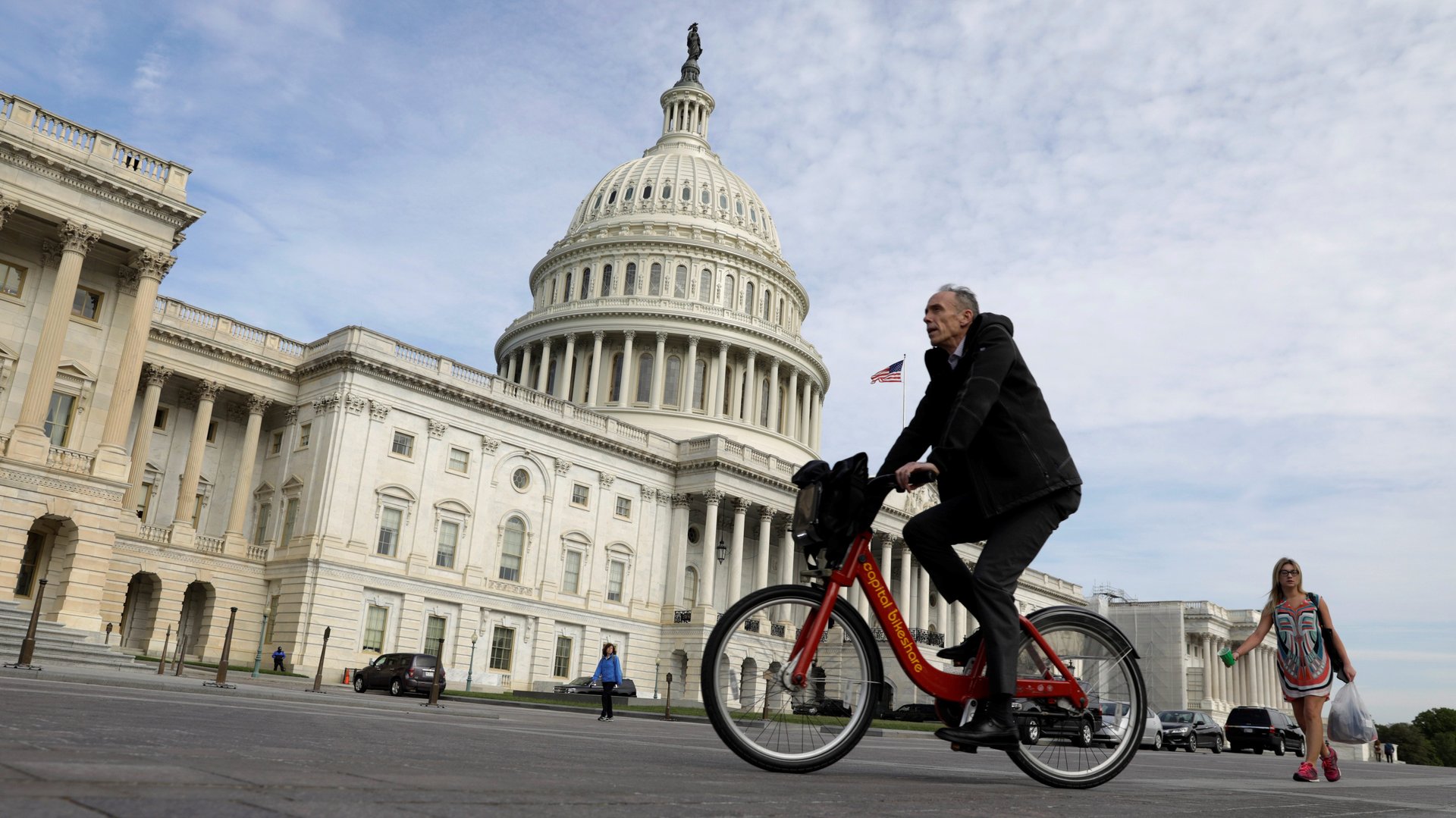The Republicans’ amended health-care law could be devastating for four big groups of Americans
The US House of Representatives voted today in favor of a new version of the deeply unpopular American Health Care Act (AHCA), which was crafted by Republicans to roll back the health-care bill commonly known as Obamacare.


The US House of Representatives voted today in favor of a new version of the deeply unpopular American Health Care Act (AHCA), which was crafted by Republicans to roll back the health-care bill commonly known as Obamacare.
In order to avoid the gridlock and Republican infighting that tanked the last version of the AHCA, a new amendment was added (pdf), known as the MacArthur amendment after its drafter, Republican representative Tom MacArthur. It allows states to request permission to waive many of the constraints Obamacare placed on insurers, such as its ban on discriminating against people with pre-existing conditions, or its list of essential benefits that must be included in any plan, including pregnancy and emergency care.
In theory, states have to show that any waiver will be accompanied by measures to avoid jeopardizing people’s health insurance. In practice, experts believe a lot of people will be left worse off.
How many people? The Congressional Budget Office (CBO) has not yet reviewed it, but the MacArthur amendment could dramatically increase the number of people affected by the AHCA. The previous version of the bill would have left an additional 24 million Americans uninsured, the CBO estimated. With the amendment, insurance could be more costly or unavailable for many millions more, including:
178 million people
who have health care from their employers
Giving increased power to states to define which benefits are “essential” would leave some states with robust insurance guidelines and some with weak ones. Separate regulations allow insurers that provide health plans to large employers to choose which state’s coverage guidelines they adopt. These companies could opt for the state with the least demanding guidelines—picking one that allows, for example, annual limits on coverage costs. This could affect anyone with employer-provided health care who has a costly event like a major accident or a premature birth.
“A single state’s decision to weaken or eliminate its essential health benefit standards could weaken or effectively eliminate the ACA’s guarantee of protection against catastrophic costs for people with coverage through large employer plans in every state,” as Brookings Institution’s Matthew Fiedler writes. About 178 million Americans had employer-provided health care in 2015.
52 million people
with pre-existing conditions, including women who have had C-sections and people who have allergies
Before Obamacare, insurers defined pre-existing conditions themselves, and transparent information about whom this included and how much more their insurance could cost was unavailable. Insurers included everything from acne to being a police officer as a pre-existing condition, the Washington Post reported.
About 52 million Americans aged 18-65 would have had pre-existing conditions under these criteria, according to research from the Kaiser Family Foundation. These include women who have had a Cesarean section. The C-section rate rose sharply during the 2000s; the US has registered at least a million or more C-section births per year since 2001 (pdf, pg. 56), though the numbers began to decline after 2008.
10 million people
with disabilities
“By design or hubris,” the bill creates “the ‘perfect storm’ for people with disabilities who struggle to escape a cycle of poverty, which is both a cause and a consequence of disability,” according to DREDF, a disability rights group. Cutting nearly $900 million in Medicaid funding will harm programs for people with disabilities, and could severely weaken special education programs in public schools, school superintendents say.
60 million
People in their 50s to mid-60s
The MacArthur amendment would also allow insurers to charge older people more. The AARP, the US’s powerful senior-citizen lobbying group, estimates that insurance costs for its members who aren’t yet covered by Medicare could rise up to $8,400 a year.
Which Americans wouldn’t suffer any harm from the new bill? Members of Congress and their staff. The AHCA still contains a loophole that would leave Obamacare intact for just that group of people. MacArthur’s office said the loophole would be closed by a vote on a separate bill. It’s not clear why it couldn’t just have been written out of the AHCA itself.